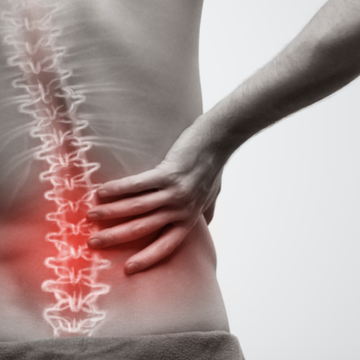Research Project

Aidan Cashin
Current Appointments
NHMRC Emerging Leadership FellowKey Research Areas
Dr Aidan Cashin (PhD, BExPhys) is a NHMRC Emerging Leadership Fellow at Neuroscience Research Australia (NeuRA) and an associate lecturer in the School of Health Sciences at the University of New South Wales. A member of the Centre for Pain IMPACT, his PhD focused on improving the evidence-based management of low back pain. Aidan was awarded the 2022 Ronald Dubner Research Prize by the International Association for the Study of Pain (IASP) for the best doctoral thesis in the field of pain. Prior to commencing research, Aidan pursued a successful clinical career as an Accredited Exercise Physiologist, practicing primarily in the field of chronic musculoskeletal pain.
Aidan’s current research deals with investigating the mechanisms of healthcare interventions for optimization and translation into clinical practice and health policy. Most of Aidan’s work is applied to the management of chronic musculoskeletal pain conditions, and he also conducts methodological work that aims to improve research transparency and openness. Follow Aidan’s work on Google Scholar and ORCID.
Publications
2024, 16 Apr
Barriers and enablers to exercise adherence in people with nonspecific chronic low back pain: a systematic review of qualitative evidence
View full journal-article on https://doi.org/10.1097/j.pain.0000000000003234
2024 Apr
Emotion regulation skills‐focused interventions for chronic pain: A systematic review and meta‐analysis
View full journal-article on https://doi.org/10.1002/ejp.2268
2024, 07 Mar
Reporting health and medical research
View full journal-article on https://doi.org/10.1136/bmjebm-2023-112563
2024 Feb
Variation observed in consensus judgments between pairs of reviewers when assessing the risk of bias due to missing evidence in a sample of published meta-analyses of nutrition research
View full journal-article on https://doi.org/10.1016/j.jclinepi.2023.111244
2024, 01 Jan
Are Exercise Interventions in Clinical Trials for Chronic Low Back Pain Dosed Appropriately to Meet the World Health Organization’s Physical Activity Guidelines?
View full journal-article on https://doi.org/10.1093/ptj/pzad114
2023, 31 Dec
The Efficacy of Graded Motor Imagery and Its Components on Phantom Limb Pain and Disability: A Systematic Review and Meta-Analysis
View full journal-article on https://doi.org/10.1080/24740527.2023.2188899
2023 Dec
Mechanisms of education and graded sensorimotor retraining in people with chronic low back pain: a mediation analysis
View full journal-article on https://doi.org/10.1097/j.pain.0000000000002978
2023 Nov
Using PROGRESS-plus to identify current approaches to the collection and reporting of equity-relevant data: a scoping review
View full journal-article on https://doi.org/10.1016/j.jclinepi.2023.09.017
2023 Oct
The smallest worthwhile effect on pain intensity of nonsteroidal anti-inflammatory drugs and exercise therapy for acute and chronic low back pain: a benefit-harm trade-off study
View full journal-article on https://doi.org/10.1016/j.jphys.2023.08.006
2023 Sep
Development of the TrAnsparent ReportinG of observational studies Emulating a Target trial (TARGET) guideline
View full journal-article on https://doi.org/10.1136/bmjopen-2023-074626






